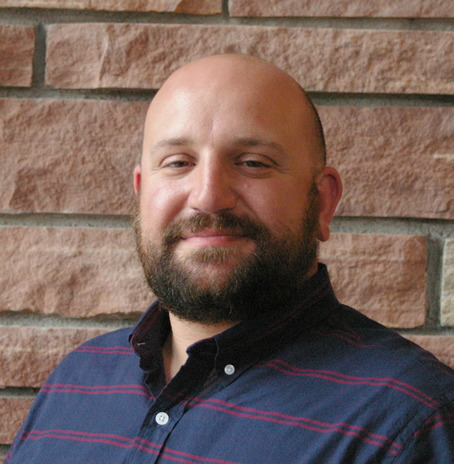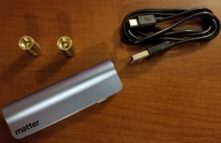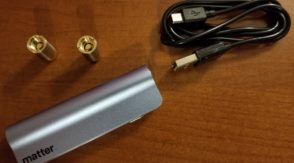Colorado State University to Study Cannabis Dose Accuracy and Real-Time Data
July 24, 2019 by Jon Southurst 0 Comment

Researchers at Colorado State University’s Department of Psychology are conducting a study into accurate cannabis dosages and effects. The three-stage beta project will also examine how useful real-time data from consumer devices could be to assist future medical research — specifically, the effectiveness of the recently-launched Gofire inhaler and smartphone app.
Also read: ‘Everything That’s Wrong With America Is Exacerbated in the Marijuana Industry’
Bradley T. Conner, Ph.D., associate professor and director of addiction counseling at Colorado State, called the study “a milestone event for cannabis research,” saying it allows his lab to gather consistent and accurate measurements that produce actionable results. It hopes to pave the way for larger-scale medical trials, should it find the results useful.
Participants to Gauge Effectiveness of Gofire Inhaler-App Combo
As we’ve mentioned previously, Gofire has devised a system based on an inhaler with cartridges that label dosages and effects. Users can scan QR codes on product labels for more information, and give each product a review with feedback on its effects.
Gofire did not initiate nor sponsor the research. Colorado State University provided the pilot funds, which included purchasing the Gofire devices.
The study includes three stages. First, 20 participants will use the Gofire inhaler and app to track intake and outcomes, to determine whether they’re useful as a research measurement tool. Second, 15 participants will provide information on how real-time data collection can inform cannabis-related health outcomes, and will include a pharmacokinetic study to measure bioavailability of each dose the inhalers are able to deliver.
The third stage looks to further and larger-scale clinical trials of cannabis treatments for medical conditions, based on delivery and data effectiveness as determined by stages one and two.
The researchers’ focus is firmly on medical treatments and finding the most effective and accurate ways to record dosage and outcomes. They see this as a hurdle the legal cannabis industry must overcome to prescribe consistent cannabis medicines.

Interview With Colorado State Researchers
Cannabis Sentinel spoke to Mark A. Prince, Ph.D., assistant professor of psychology and associate director of addiction counseling at Colorado State University, for more information about the study.
JS: Which cannabis chemical profiles will you look at?
MAP: The focus of this beta trial is to collect pilot data to support a larger grant application to the National Institutes of Health. The focus is on the efficacy of the Gofire device as a research tool and on participant’s reactions to using the device. We will look at associations with a range of cannabis chemical profiles and physical and mental health outcomes, but we will likely have too small of a sample in this trial to draw any conclusions. Our hope is that this trial can inform the aims of the larger study.
JS: Are there any particular medical conditions you’re focusing on?
MAP: At this stage of our research we are interested in learning the range of medical conditions for which participants are reporting using cannabis. We are hopeful that this Beta trial will help guide us to what conditions are most important to target in future studies.
JS: Will you examine any non-medical (i.e., recreational) effects?
MAP: This study is not targeting recreational effects. However, we are interested in positive outcomes associated with cannabis use and would ultimately like to be able to better characterize beneficial outcomes from adverse outcomes.
JS: Have you seen any other similar delivery devices or data collection platforms that collect real-time data from the public?
MAP: There are other models of near real-time data collection, but none that we have seen that collect automatic real-time data from cannabis users with the degree of specificity provided by Gofire.
JS: How will you guarantee the test results are independent and not influenced by Gofire in any way?
MAP: Gofire has not provided any input into the study design or expressed any interest in influencing the outcomes. Also, it is an important distinction that Gofire is not sponsoring this study. We received pilot funds from Colorado State University to conduct this study to determine the efficacy of this medical device for research purposes. We will not consult with Gofire on the interpretation of our findings and have no obligation to present the results of the study in any particular light. My colleagues and I value the integrity of the research above all else.
Will cannabis dosage and effect information become more accurate as user data increases? Let us know in the comments, or share and discuss this article on social media.
Images via Colorado State University








